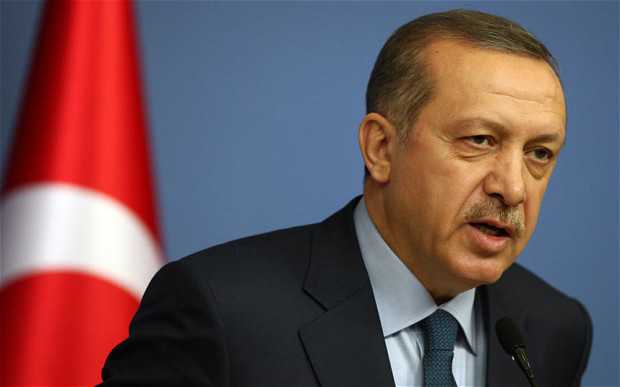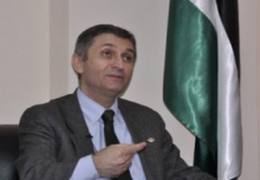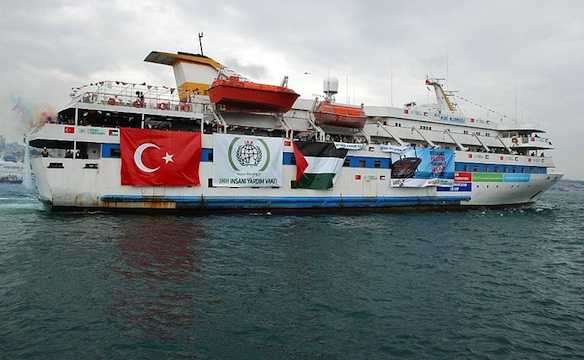Turkish Prime Minister Recep Tayyip Erdogan Photo: AP
By Robert Tait, Jerusalem4:05PM GMT 01 Mar 2013

The comment, made at a United Nations conference to promote religious tolerance, earned a rebuke from Israel, the United Nations and the US, overshadowing a visit by John Kerry, the secretary of state, in Ankara for talks with Mr Erdogan on Syria.
Speaking to the global forum of the Alliance of Civilisations in Vienna on Wednesday, Mr Erdogan said: “As is the case for Zionism, anti-Semitism and fascism, it is inevitable that Islamophobia be considered a crime against humanity.”
Mr Kerry said he found the remarks “objectionable”.
“We not only disagree with it, but we find it objectionable,” he said, during a joint press conference with Ahmet Davutoglu, his Turkish counterpart. “I raised the speech with the foreign minister and I will raise it with the prime minister.”
A senior US official travelling with Mr Kerry’s party condemned the remark as “offensive” and said Turkish officials would be left in no doubt about Washington’s annoyance.
“This was particularly offensive, frankly, to call Zionism a crime against humanity … It does have a corrosive effect (on relations),” the official said. “I am sure the secretary will be very clear about how dismayed we were to hear it.”
“The Turkey-Israel relationship is frozen. We want to see a normalisation … not just for the sake of the two countries but for
the sake of the region and, frankly, for the symbolism,”
The Obama administration has sought to maintain close ties with Turkey — a majority Muslim country that is also a NATO ally — despite its deteriorating relationship with Israel partly because of its potential ability to be a broker in the civil war in Syria.
Mr Erdogan’s remark had earlier been denounced by the White House and by Benjamin Netanyahu, the Israeli prime minister, who called it “a dark and mendacious statement the likes of which we thought had passed from the world”.
Ban Ki-moon, the UN secretary general, who was present during Mr Erdogan’s speech and heard it on simultaneous translation, said it breached the spirit of the Alliance of Civilisations, which was formed in 2005 — with Turkey as a co-sponsor – to promote east-west understanding and combat extremism.
“The Secretary-General believes it is unfortunate that such hurtful and divisive comments were uttered at a meeting being held under the theme of responsible leadership,” a statement from his office said.
“If the comment about Zionism was interpreted correctly, then it was not only wrong but contradicts the very principles on which the Alliance of Civilizations is based.”
Mr Ban had earlier come under attack from UN Watch, a Geneva-based group proclaiming affiliations to the US Jewish community, for failing to criticise Mr Erdogan’s speech immediately after it was made.
Pro-Zionist groups frequently complain that the UN is biased against Israel — pointing to a 1975 resolution equating Zionism with racism.
The resolution was revoked in 1991 after the collapse of the Soviet Union.
Relations between Israel and Turkey — once close allies — have been strained since 2010, when nine Turkish activists were killed after Israeli commandoes stormed a flotilla heading for the Gaza Strip. Mr Netanyahu has resisted Turkish pressure to apologise and pay compensation.
Ties between the two nations were recently said to be undergoing a quiet revival, encouraged by the US, amid reports that Israel had resumed selling armament equipment to Turkey.
Mr Erdogan, a former Islamist, has sharply criticised Israel in the past, although he has refrained from attacks on Zionism. In 2009 he stormed out of a debate with the Israeli president, Shimon Peres, at the World Economic Forum in Davos, after telling him “you Israelis know how to kill”.
via Turkey’s Recep Tayyip Erdogan under fire for Zionism remarks – Telegraph.





